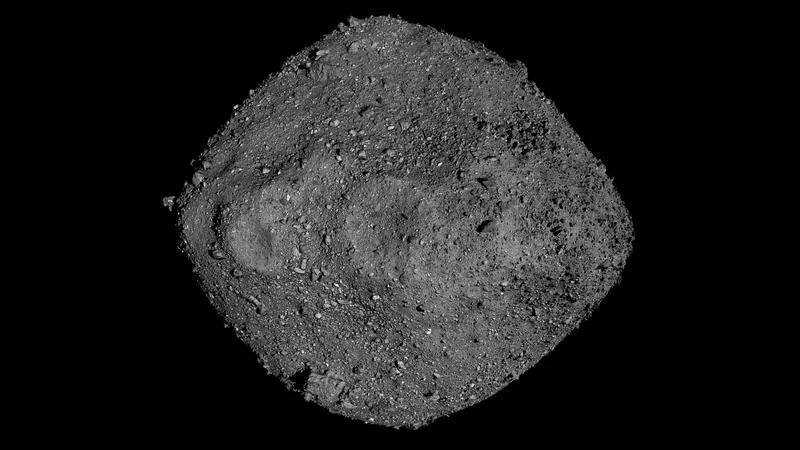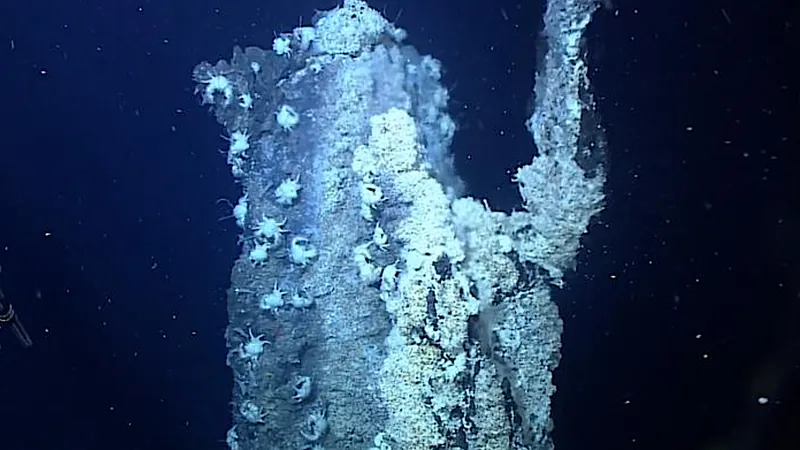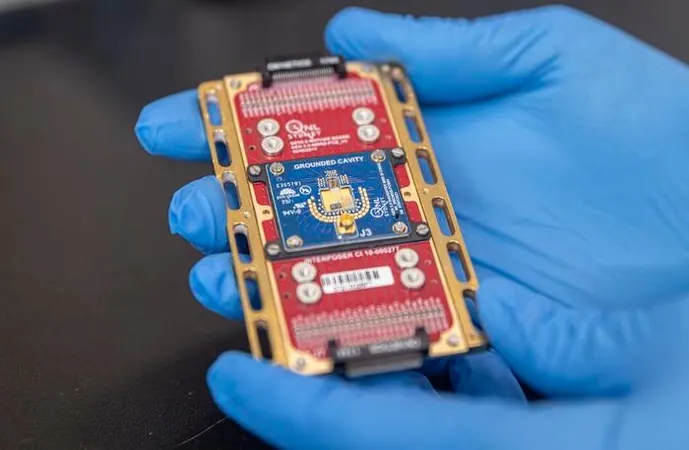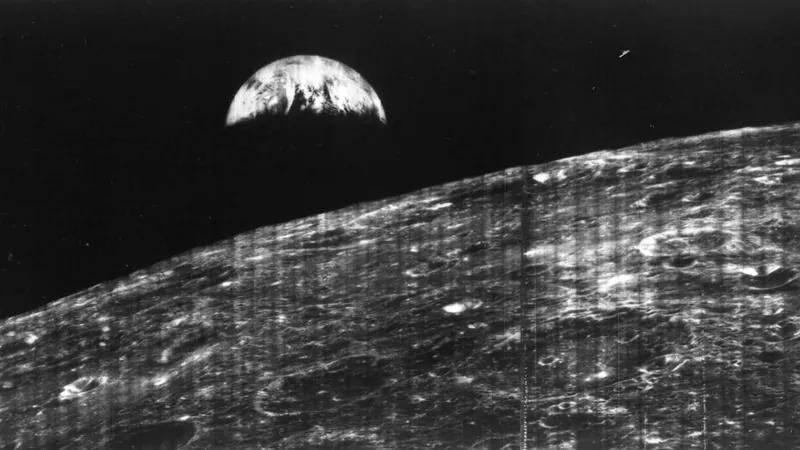
Asteroid Bennu: A Cosmic Time Capsule with Ancient Stardust and Interstellar Secrets!
2025-08-25
Author: Noah
Asteroid Bennu: Age-Old Wonders Revealed
Asteroid Bennu, a near-Earth traveler, has turned out to be a cosmic treasure trove, containing dust older than our solar system! Recent studies of its samples have unveiled not just ancient materials, but also organic compounds and ices from the mysterious realms of interstellar space.
Since NASA's groundbreaking OSIRIS-REx mission successfully retrieved samples from Bennu in 2020 and returned them to Earth in 2023, scientists globally have been eagerly decoding its secrets. These findings shed light on the conditions of the universe that existed over 4.6 billion years ago, offering clues about the origins of our own solar system.
A Clash of Cosmic Titans
The initial study, published on August 22 in *Nature Astronomy*, delved into Bennu’s tumultuous past. Researchers suggest that Bennu's parent body met a dramatic end in a collision, fragmenting into what we see today. This celestial progenitor carried diverse materials from various environments—some from close to the sun, others from the far reaches of our solar system, and even beyond.
By examining isotopes found within Bennu's dust, scientists were able to trace the origins of these materials. Ann Nguyen, a co-author of the study, emphasized this stunning journey, stating, "All of these constituents were transported great distances to the region that Bennu's parent asteroid formed."
The Catastrophic Birth of Bennu
It’s believed that the parent asteroid was born beyond Jupiter and Saturn, only to be shattered by an incoming asteroid catastrophe. Co-lead author Jessica Barnes detailed how fragments from the collision might have reassembled repeatedly before coalescing into Bennu.
Bennu vs. Ryugu: Cosmic Cousins?
Another fascinating study, appearing in *Nature Geoscience*, compared Bennu to primitive meteorites and its space sibling, asteroid Ryugu, sampled by Japan's Hayabusa2 mission. Though likely originating from a similar, distant region of the early solar system, Bennu's unique characteristics indicate that this area experienced significant changes over time.
Tom Zega, co-leader of the second paper, noted the influence of water on Bennu's materials. He explained that the asteroid’s parent absorbed icy material, which melted and chemically altered the dust to form the sample found today.
Micrometeorites: Nature's Tiny Sculptors
The final paper, also published in *Nature Geoscience*, uncovered evidence of micrometeorite impacts on Bennu, revealing a surface marked by microscopic craters and molten remnants. Co-author Lindsay Keller pointed out that Bennu's surface weathering is happening much faster than previously thought, driven primarily by these impacts.
While Bennu itself does not host life, the discoveries it harbors could illuminate the very processes that led to life on Earth, as emphasized by Michelle Thompson, a study co-author. The secrets of Bennu are not just about understanding our cosmic neighbors but understanding our own origins!
Explore the Mystique of Bennu!
As we continue to unravel the mysteries of Bennu, this asteroid stands as a celestial time capsule, bridging the ancient past of our universe with the ongoing quest to understand life itself. Buckle up, as this journey through space and time is just beginning!









 Brasil (PT)
Brasil (PT)
 Canada (EN)
Canada (EN)
 Chile (ES)
Chile (ES)
 Česko (CS)
Česko (CS)
 대한민국 (KO)
대한민국 (KO)
 España (ES)
España (ES)
 France (FR)
France (FR)
 Hong Kong (EN)
Hong Kong (EN)
 Italia (IT)
Italia (IT)
 日本 (JA)
日本 (JA)
 Magyarország (HU)
Magyarország (HU)
 Norge (NO)
Norge (NO)
 Polska (PL)
Polska (PL)
 Schweiz (DE)
Schweiz (DE)
 Singapore (EN)
Singapore (EN)
 Sverige (SV)
Sverige (SV)
 Suomi (FI)
Suomi (FI)
 Türkiye (TR)
Türkiye (TR)
 الإمارات العربية المتحدة (AR)
الإمارات العربية المتحدة (AR)